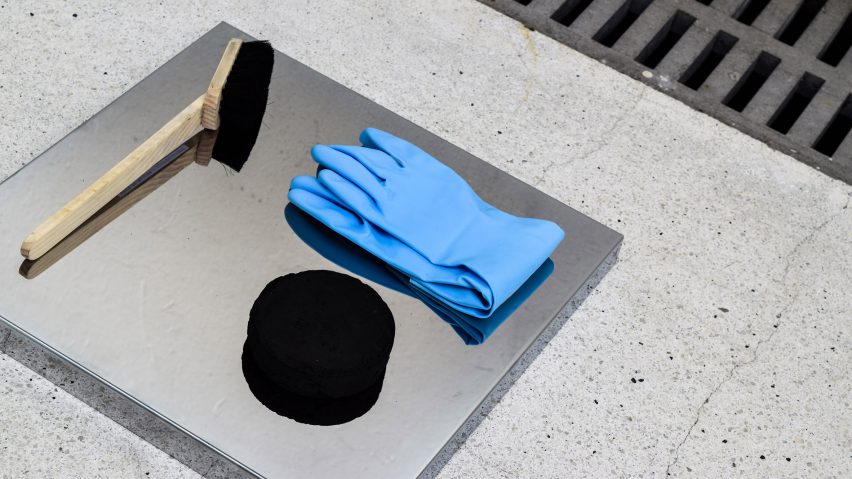
Soley Thrainsdottir creates sustainable cleaning tools using natural waste materials
Iceland University of the Arts graduate Soley Thrainsdottir has turned leftover materials like pine needles and horse fat into a series of cleaning tools and products.
Presented at the DesignMarch festival, the Cleaning Strategies project aims to explore the potential of alternative local raw materials as sustainable cleaning tools.
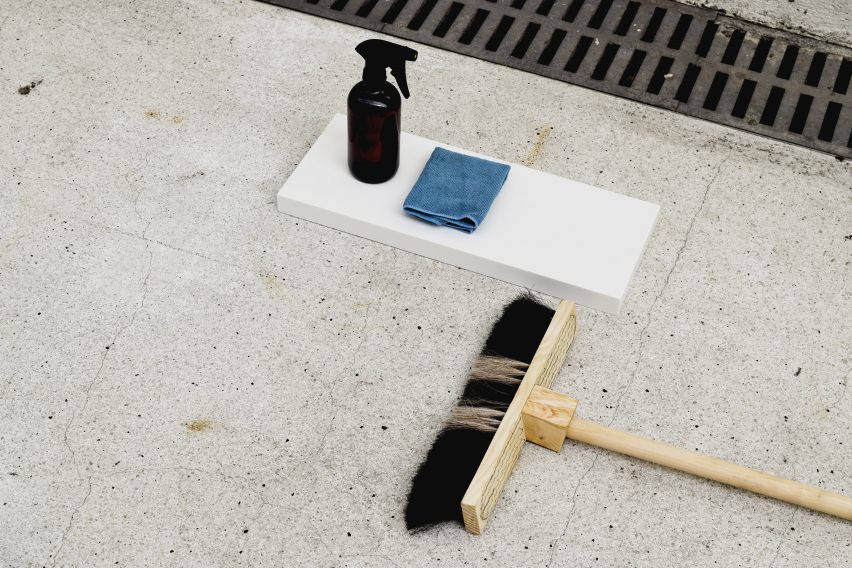
Thrainsdottir focused on waste material from Iceland's forestry and slaughter industries to create a brush, soap, cleaning spray and polish.
"On an industrial scale, various local raw materials are eliminated and 'cleaned away' without a critical assessment of their possible use," she said.
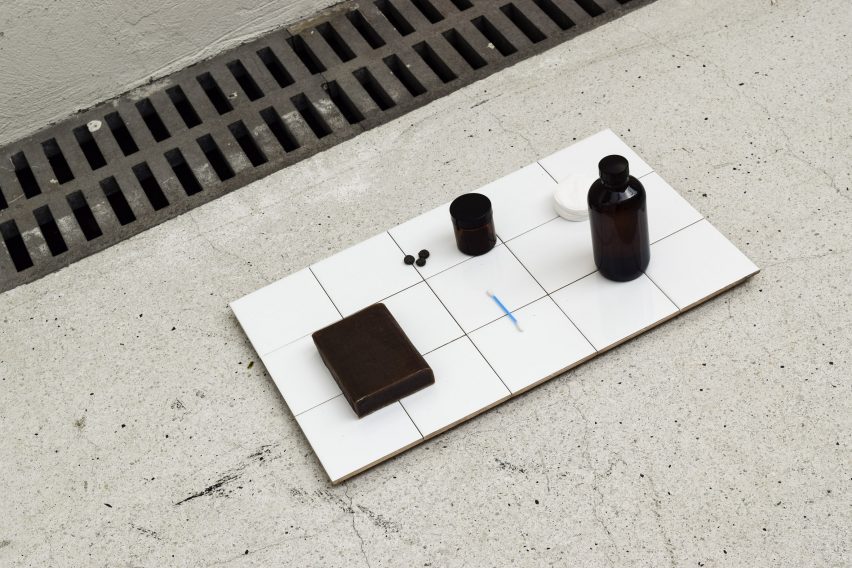
Thrainsdottir wanted to conduct both practical research into industrial waste and philosophical research into cleanliness. She therefore began by defining phrases and words connected to the concept of cleanliness to look at the difference in perceptions of what is perceived as clean in humans and animals.
She also examined different cleaning rituals across the world, and the history of human cleanliness and cleaning products.
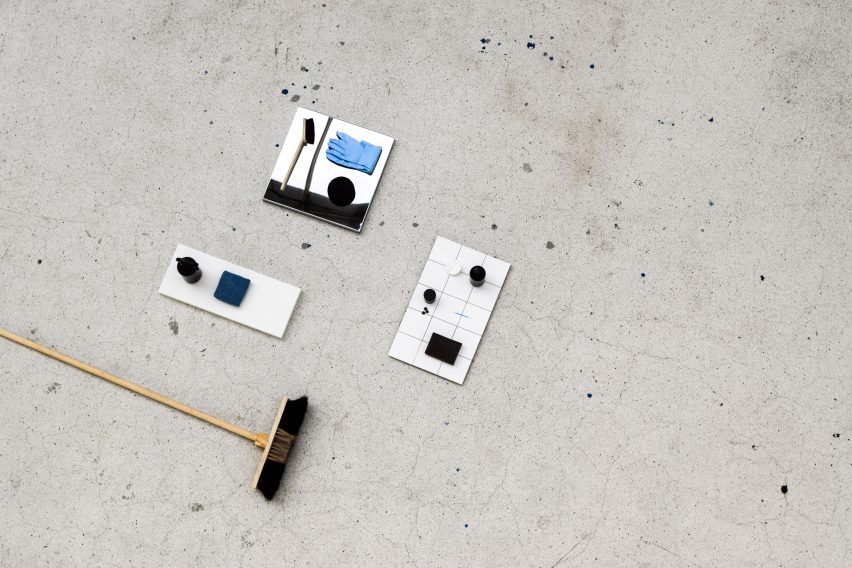
While researching waste materials, Thrainsdottir found that raw materials from felled pine trees and butchered Icelandic horses are commonly wasted or exported.
This led the designer to examine the various properties of these two resources, and how they could be used to create cleaning products and tools.
The disinfecting qualities of pine oil made it suitable for a cleaning spray, while pine ash was turned into a paste for polishing metal and glass, because of its scratch-free and antiseptic properties.
Meanwhile, horse hair was repurposed as a brush due to its durability and heat resistance, and horse fat was manufactured into soap.
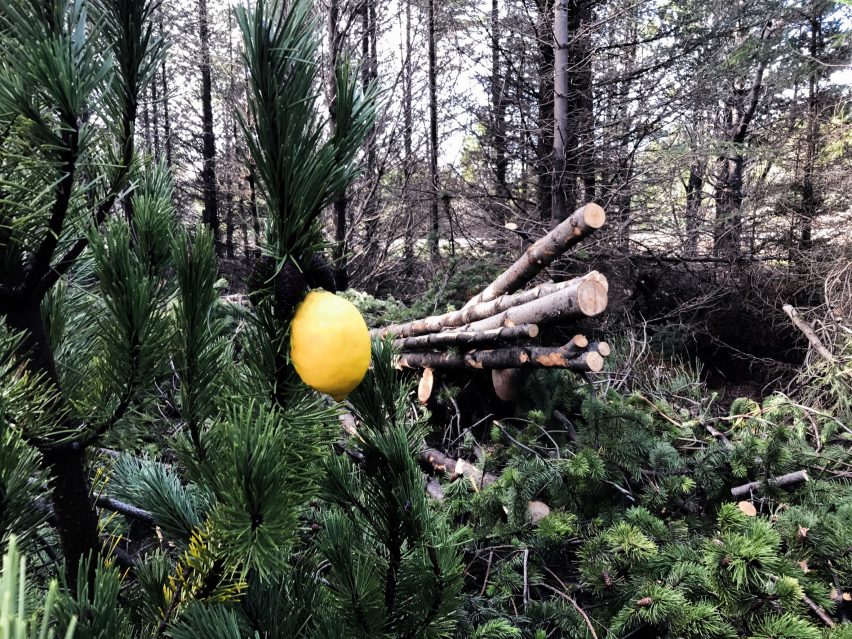
"Cleanliness is considered desirable in our everyday life, and dirt and other elements are constantly removed from our surroundings," said Thrainsdottir.
"In that context, we can talk of a culture of cleanliness that creates numerous chemical cleaning agents and tools, and the importing of mass-produced cleaning products made of water, plastics and matters of unknown origin."
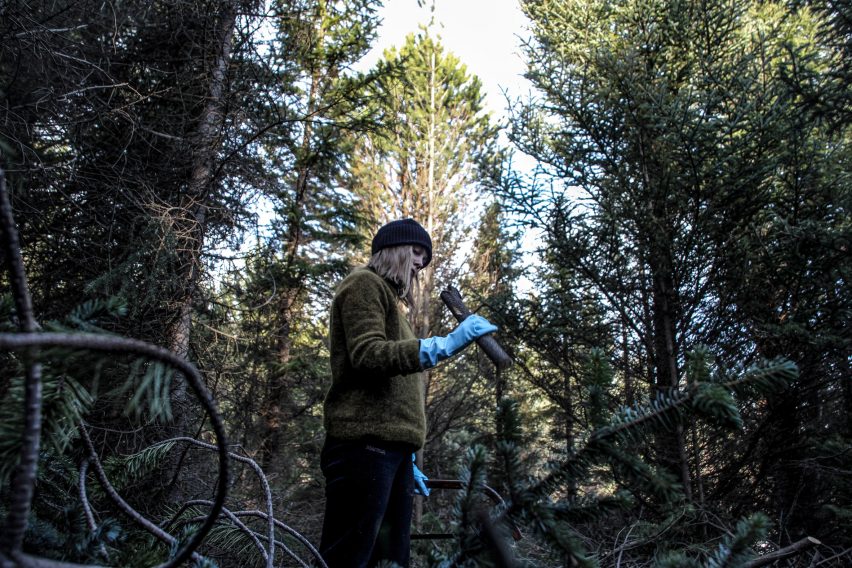
Many of the projects exhibited during this year's DesignMarch – which took place in Reykjavík between 15 and 18 March 2018 – focused on sustainability. They included homeware made from recycled waste material and burgers made of mealworms and algae by IKEA's research lab Space 10.